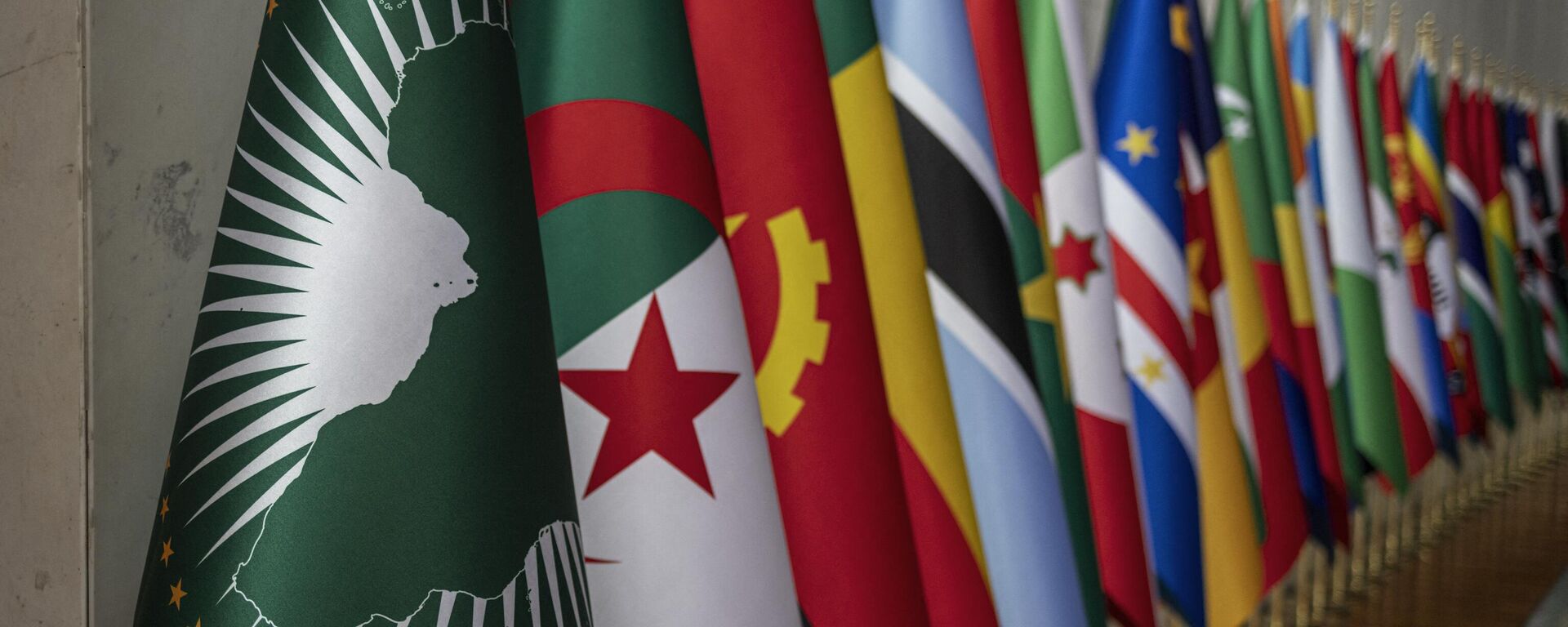https://en.sputniknews.africa/20240217/brazil-african-countries-must-work-out-their-way-in-global-governance-says-president-1065119291.html
Brazil, African Countries Must Work Out Their Way in Global Governance, Says President
Brazil, African Countries Must Work Out Their Way in Global Governance, Says President
Sputnik Africa
From February 17 to 18, the Ethiopian capital of Addis Ababa hosts the 37th Ordinary Session of the Assembly of Heads of State and Government of the African... 17.02.2024, Sputnik Africa
2024-02-17T15:28+0100
2024-02-17T15:28+0100
2024-02-17T15:28+0100
lula da silva
brazil
addis ababa
brics
african union (au)
brics expansion
summit
international
https://cdn1.img.sputniknews.africa/img/07e8/02/11/1065119497_0:0:3071:1728_1920x0_80_0_0_28f49d60177cdafb1099d11eab202f41.jpg
Brazil and African countries must work out their way in global governance, BRICS can help them to do so. Brazilian President Luiz Inacio Lula da Silva made such a statement at the opening of the 37th African Union Summit.Lula da Silva emphasized that BRICS is such a platform that allows developing countries to assert themselves.Initially composed of Brazil, Russia, India, China, and South Africa, BRICS recently expanded its membership with the invitation of five new countries, including two nations from the African continent – Egypt and Ethiopia.Recently, several African nations have expressed interest in joining or partnering with BRICS, with some submitting official applications for membership. The alliance of the world's emerging economies is committed to economic cooperation, development, and a multipolar world order in which all nations have an equal voice.
https://en.sputniknews.africa/20240217/au-heads-of-state-summit-what-is-on-the-agenda-1065115975.html
brazil
addis ababa
Sputnik Africa
feedback@sputniknews.com
+74956456601
MIA „Rossiya Segodnya“
2024
Sputnik Africa
feedback@sputniknews.com
+74956456601
MIA „Rossiya Segodnya“
News
en_EN
Sputnik Africa
feedback@sputniknews.com
+74956456601
MIA „Rossiya Segodnya“
Sputnik Africa
feedback@sputniknews.com
+74956456601
MIA „Rossiya Segodnya“
lula da silva, brazil, addis ababa, brics, african union (au), brics expansion, summit, international
lula da silva, brazil, addis ababa, brics, african union (au), brics expansion, summit, international
Brazil, African Countries Must Work Out Their Way in Global Governance, Says President
From February 17 to 18, the Ethiopian capital of Addis Ababa hosts the 37th Ordinary Session of the Assembly of Heads of State and Government of the African Union (AU), as the continent grapples with conflicts, political crises, and regional tensions. Among those attending from outside the region was Brazilian President Luiz Inacio Lula da Silva.
Brazil and African countries must work out their way in global
governance, BRICS can help them to do so. Brazilian President Luiz Inacio Lula da Silva made such a statement at the opening of the 37th African Union Summit.
"The African struggle has much in common with the challenges faced by Brazilians. Of Brazil's 200 million people, almost half are descendants of Africans. We Africans and Brazilians must forge a path in this world order, to create new instruments of global governance," he said.
Lula da Silva emphasized that BRICS is such a platform that allows developing countries to assert themselves.
"The global south is becoming such a player whose opinion cannot be ignored," the Brazilian leader added.
Initially composed of Brazil, Russia, India, China, and South Africa, BRICS recently expanded its membership with the invitation of five new countries, including two nations from the
African continent – Egypt and Ethiopia.
Recently, several African nations have expressed interest in joining or partnering with BRICS, with some submitting official applications for membership. The alliance of the world's emerging economies is committed to economic cooperation, development, and a multipolar world order in which all nations have an equal voice.


